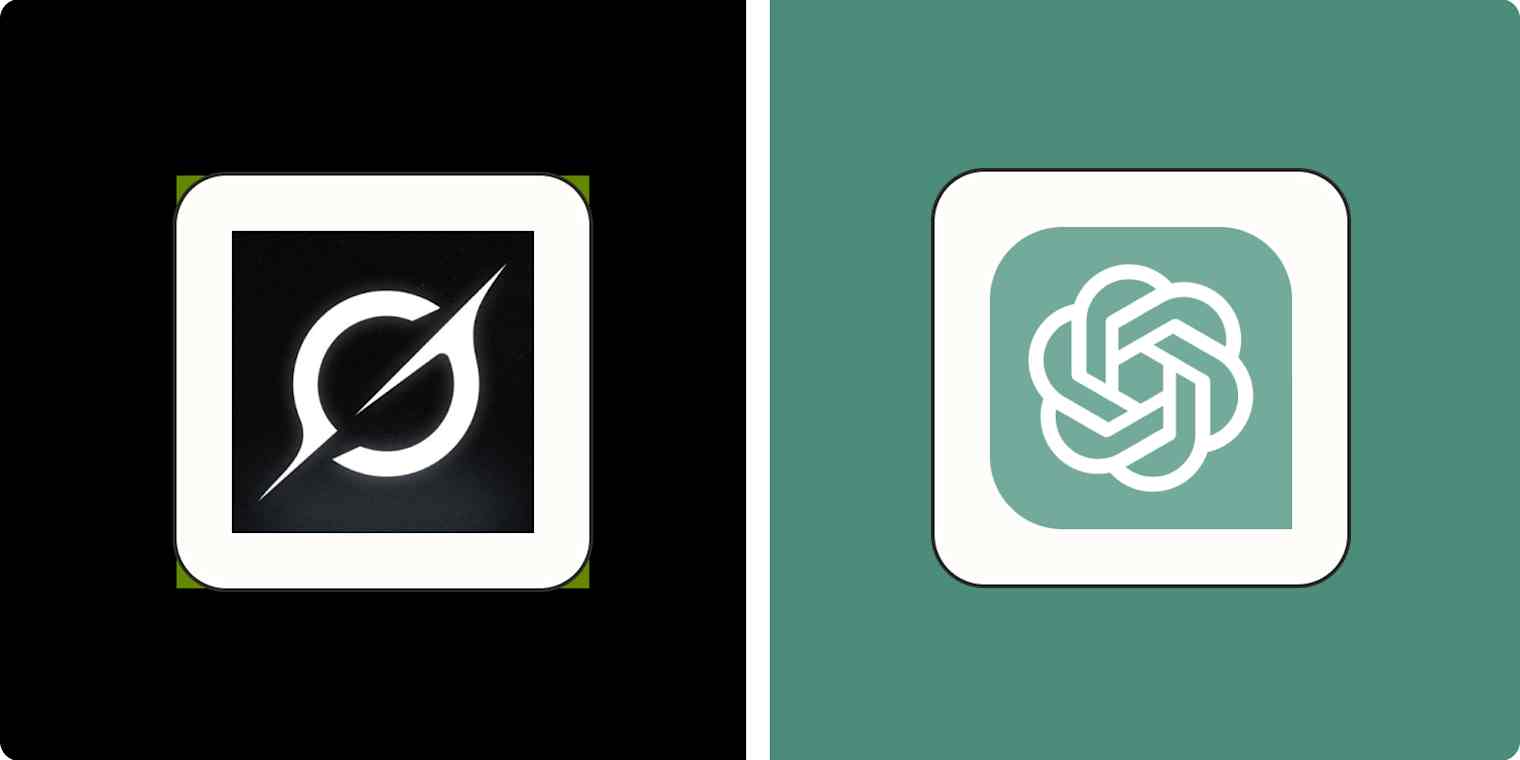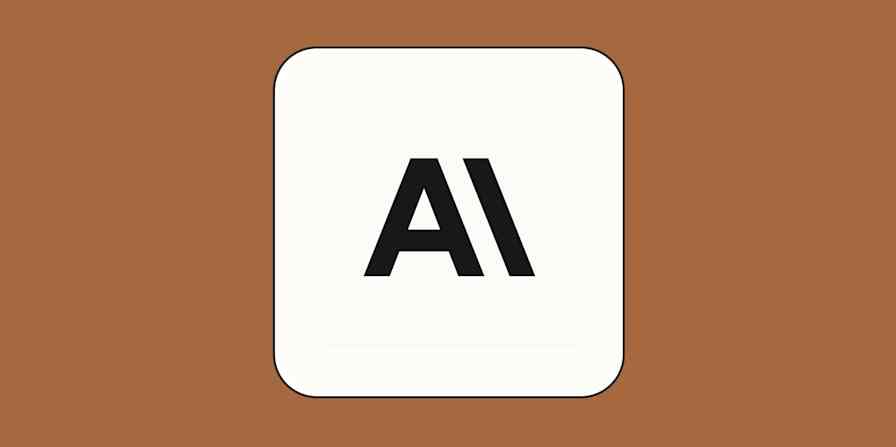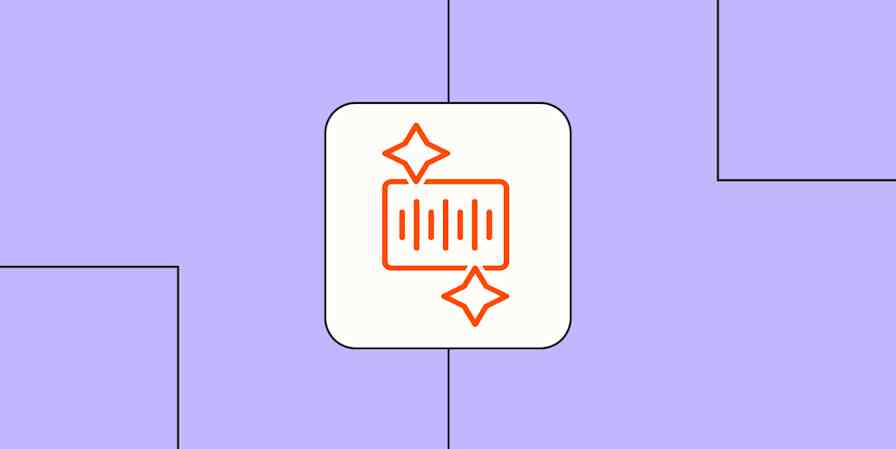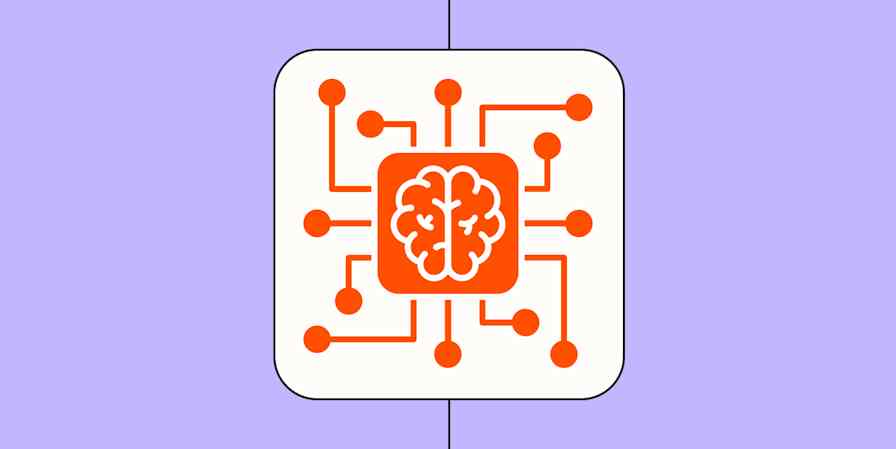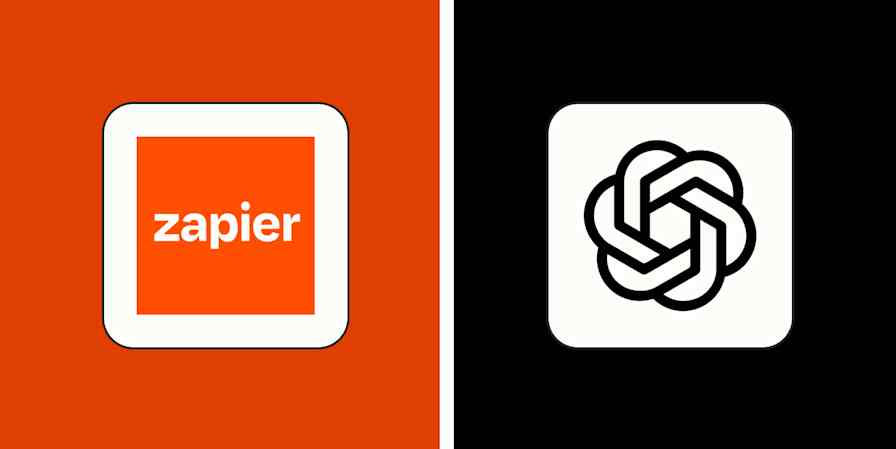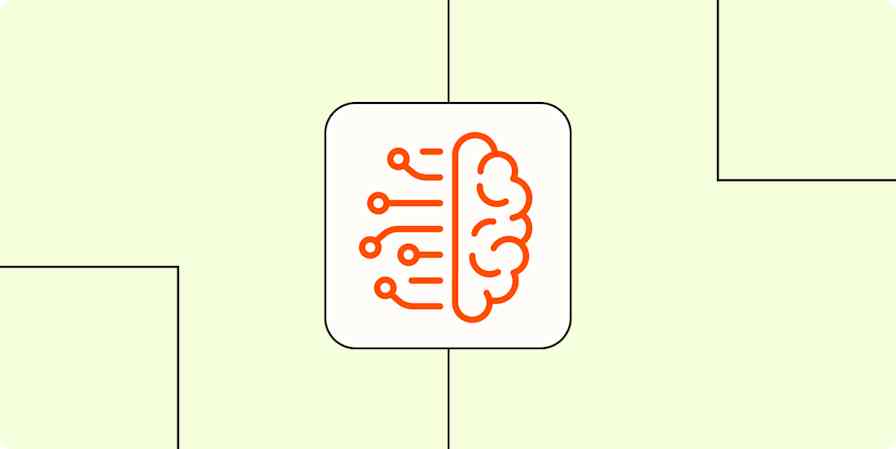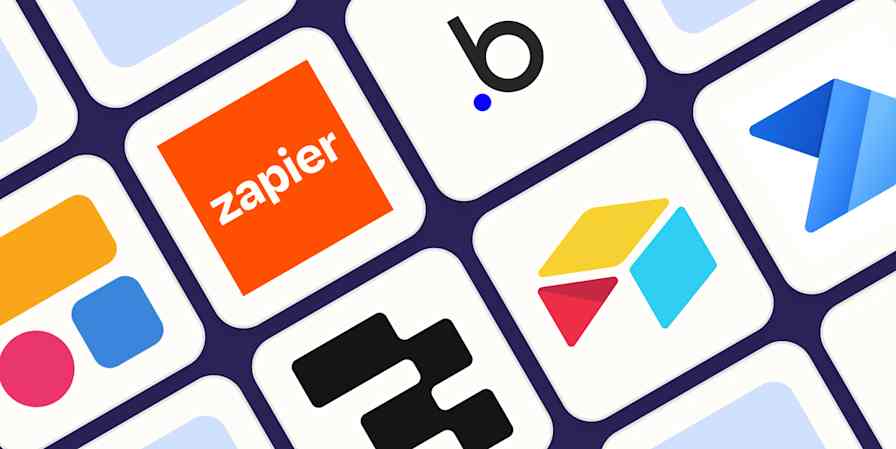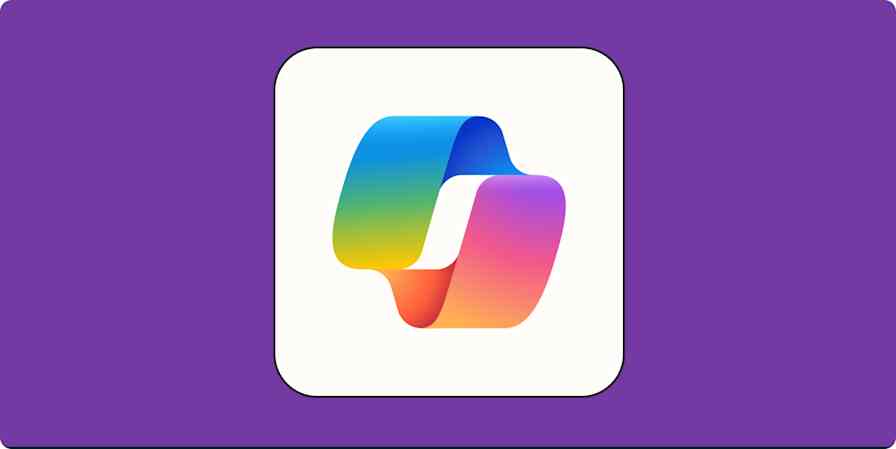Elon Musk has a big problem with OpenAI. Musk was involved in founding OpenAI in 2015, left with a lot of bad blood in 2018, and to cut a long story very short, is not happy with the direction things have taken since ChatGPT blew up. In response, he sued OpenAI (the case is ongoing) and launched his own AI company, xAI. All this would be inside baseball, except the latest version of xAI's chatbot and large language model, Grok 3, is actually good.
So, since Grok is now worth talking about, let's see how it stacks up to ChatGPT.
Table of contents:
Grok vs. ChatGPT at a glance
First, a clarification: Grok is the name of xAI's standalone chatbot, its LLM, and the chatbot built into X-formerly-Twitter that uses the same model but has a slightly different feature set. ChatGPT is the chatbot built on OpenAI's various models.
The main thrust of this comparison is looking at ChatGPT (the chatbot) and Grok (the chatbot with its own website), but that obviously involves some discussion of the underlying models, the companies, how else they're available, and everything else.
With all that, ChatGPT and Grok are both solid AI chatbots, though there are some differences. You can see an overview below, or read on to get the full picture.
Grok | ChatGPT | |
|---|---|---|
Power | ⭐️⭐️⭐️⭐️⭐️ Grok 3 is one of the best models around | ⭐️⭐️⭐️⭐️⭐️ OpenAI consistently has some of the most powerful models, and you can access them through ChatGPT |
Features | ⭐️⭐️⭐️ While Grok nails the basics, it lacks polish, is less flexible than ChatGPT, and doesn't offer any kind of team features | ⭐️⭐️⭐️⭐️⭐️ ChatGPT sets the standard for AI chatbots |
Availability | ⭐️⭐️⭐️ Web and iOS app (with Android coming soon) and availability through X | ⭐️⭐️⭐️⭐️⭐️ Web, desktop, and mobile apps, plus integrations with Zapier and other apps |
Value | ⭐️⭐️⭐️ Solid free plan, but $30/month (or $40 if you want X features) isn't compelling | ⭐️⭐️⭐️⭐️⭐️ Solid free plan; ChatGPT Plus offers a lot for $20/month |
Both ChatGPT and Grok offer powerful models
Comparing the best chatbots and AI models is getting increasingly silly.
Grok 3 (which powers Grok) and GPT-4o, GPT-4o mini, o1, o3-mini, and GPT-4.5 (which power ChatGPT) are all incredibly powerful models. Unless you're really pushing the boundaries of what's possible with AI models, you're unlikely to find massive real-world differences between what Grok and ChatGPT are capable of. Both will help you write emails, analyze documents, summarize content from around the web—and whatever else you do with an AI chatbot—with equal aplomb.

Right now, the biggest point of difference with AI models in general is between reasoning models (or models used in reasoning mode) and non-reasoning models (or models used without reasoning mode). Reasoning models take time and use additional computational resources to "think" about hard problems—for math, coding, and logic, they far outstrip non-reasoning models. But both Grok and ChatGPT have reasoning and non-reasoning options.

In the chart above from ArtificialAnalysis, you can see how the Grok and OpenAI's models stack up. As you can see, there are very few hard conclusions that can be drawn. o3-mini is obviously superior to the non-reasoning Grok 2, but Grok 3 Reasoning beats GPT-4o mini by much the same margin. All this is to say that in terms of AI performance, the difference between the best performing Grok and ChatGPT models is far smaller than the difference between the best Grok model and the worst Grok model (and the same is true for ChatGPT).
Having said that, in my testing of the reasoning models, Grok took longer to come to the same answer. It also failed my hardest current prompt, though only o3-mini-high has passed that so far.

Both ChatGPT and Grok have the basic features you'd expect from an AI chatbot
The feature overlap between ChatGPT and Grok is also huge.
Both are able to search the web and use the information they find to respond to your prompts. Grok can also pull in posts from X, which might help with newsworthy events—but I did see some troubling comments when I asked about Ireland's housing crisis.
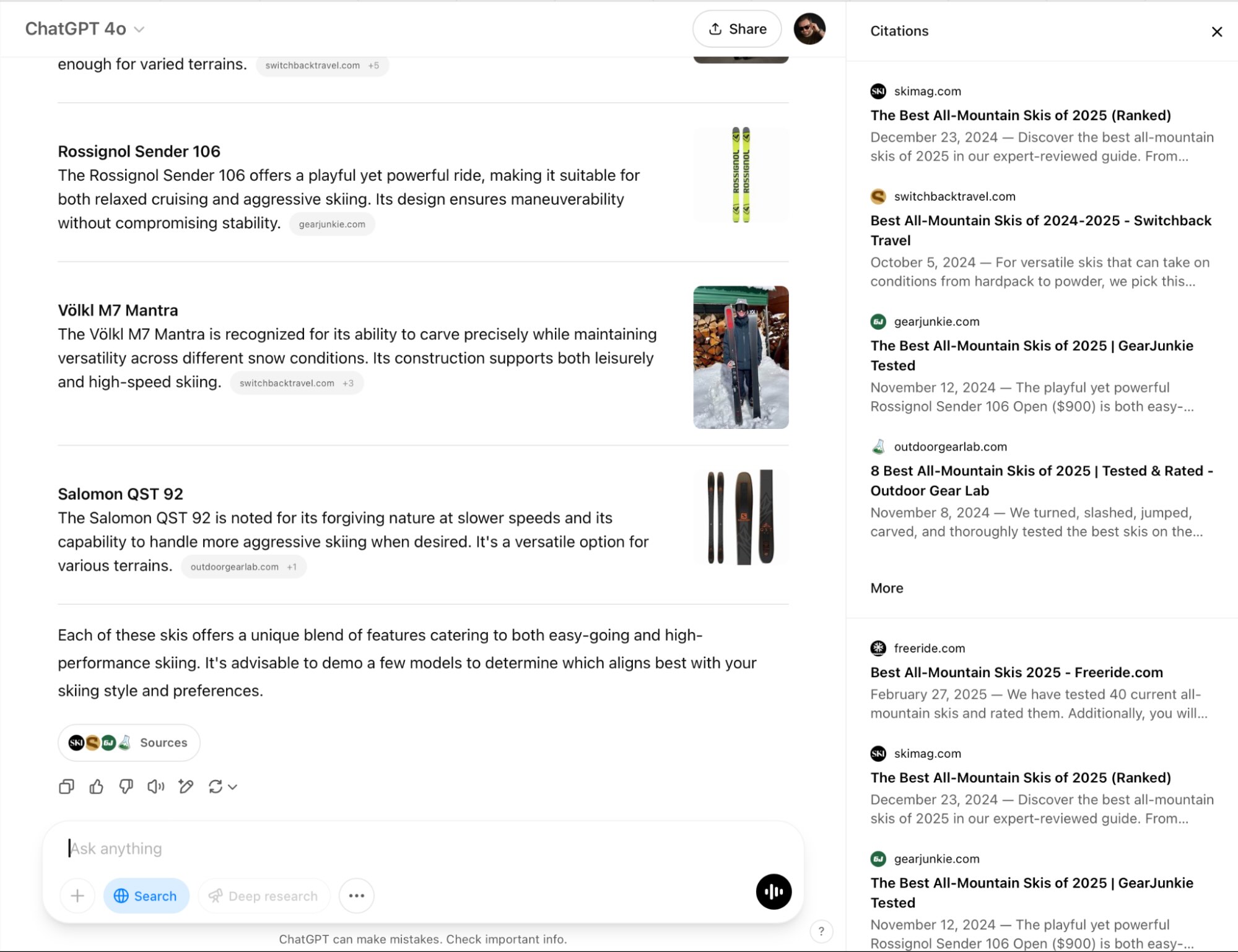
Both also have a research mode that combines web search and reasoning. ChatGPT calls it deep research while Grok has DeepSearch and DeeperSearch. While these modes have a lot of promise, I'm not sure they're much better than using Google yourself at the moment. For what it's worth, I prefer how Grok lays out its info.
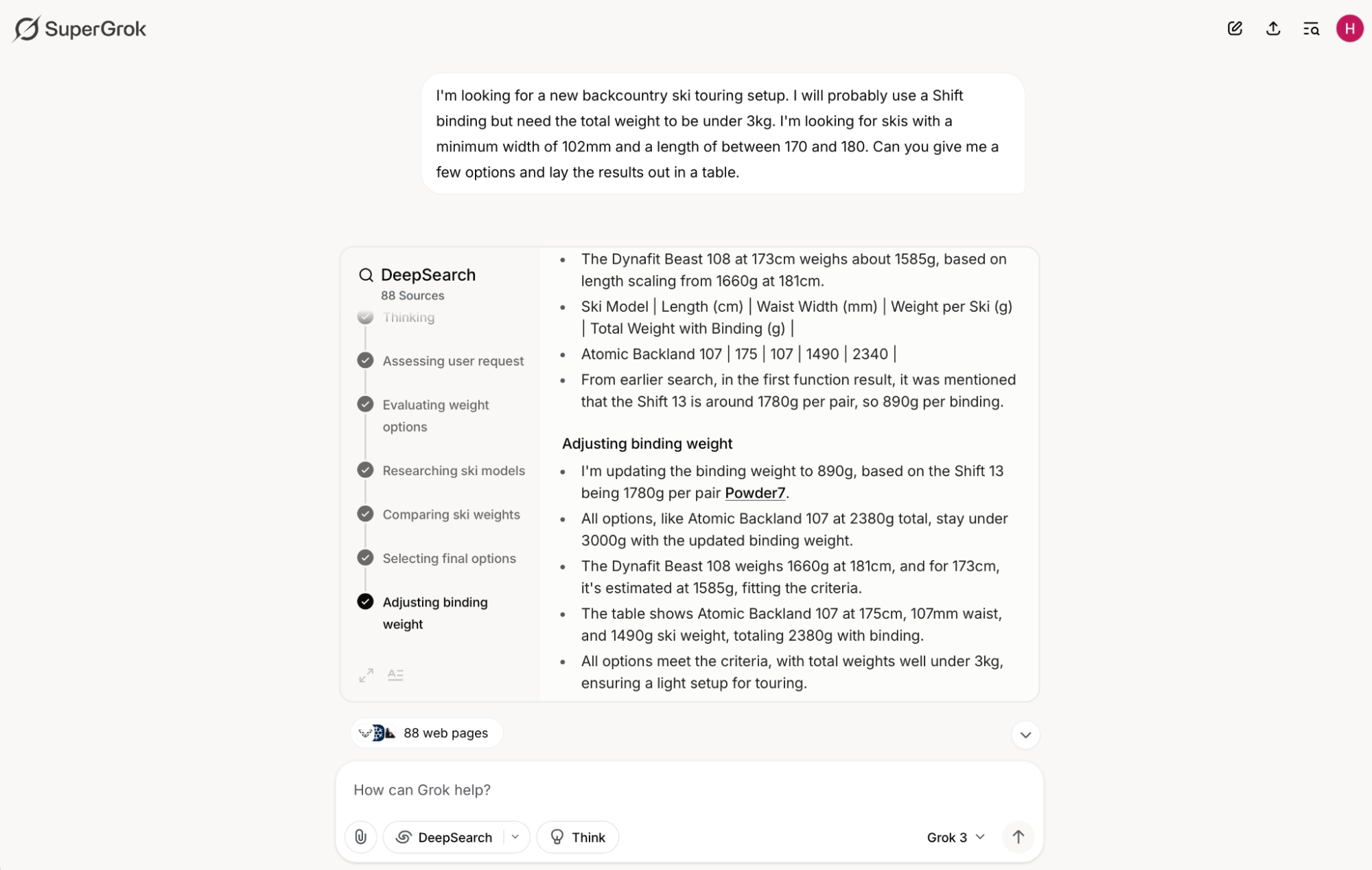
Both are multimodal, so they can read prompts that include images and documents.
Both are also capable of generating images, though honestly, neither excels at it. Grok's image generator is merely fine, though I found that it's very willing to use copyright infringing characters in its designs. ChatGPT is much better, but it plays things a lot safer. If you're really serious about generating images, though, you're better off with a dedicated AI image generator.
Both have voice modes that allow you to talk to the chatbot and even interrupt it, though Grok's only works through its mobile app.
Plus, both are pretty nice to use. Really, when it comes to the fundamental features of a chatbot, both ChatGPT and Grok are equally solid.
ChatGPT has a lot of extra features
ChatGPT is the more mature product, both in terms of its features and its general approach to pretty much everything. Here are the areas I think ChatGPT stands out from Grok the most.
A Google Docs-like workspace called Canvas that supports human-AI collaboration on writing and coding tasks.

The ability to create and use custom versions of ChatGPT.
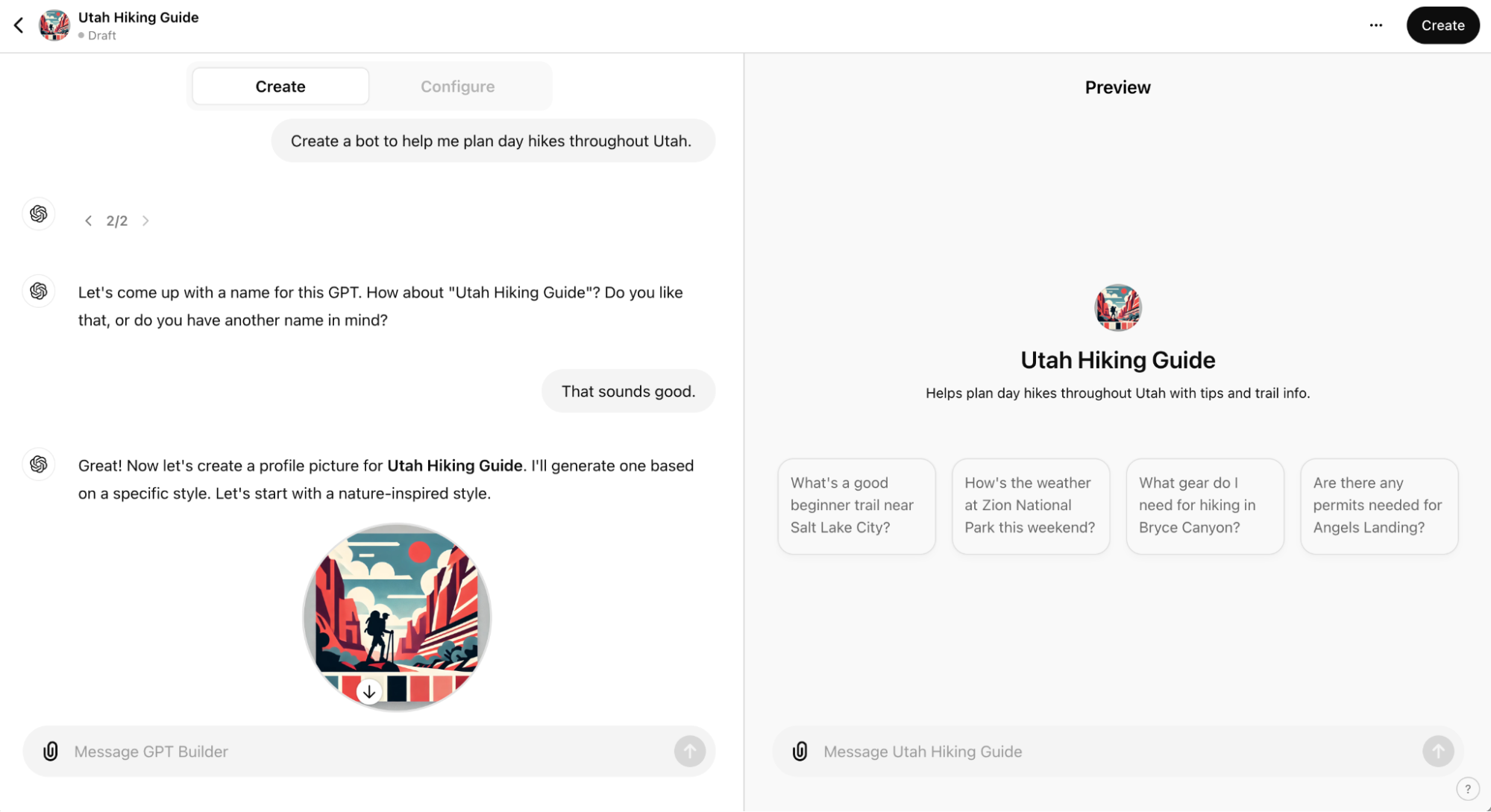
Dedicated Windows, Mac, and Android apps—not just web and iOS apps.
The ability to schedule ChatGPT to perform tasks at certain times (though this feature is still pretty barebones).
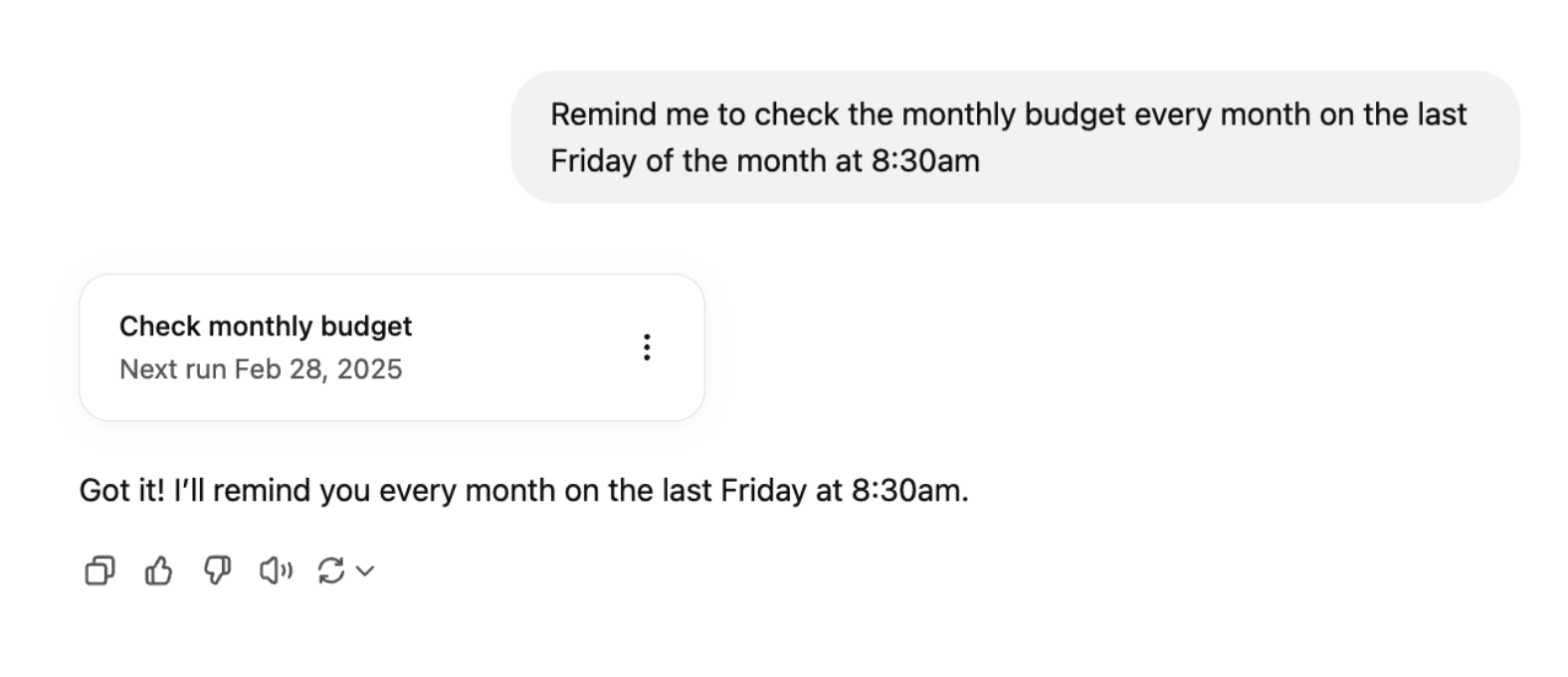
Organizational features (like Projects) to organize chats and upload knowledge sources for discrete projects.
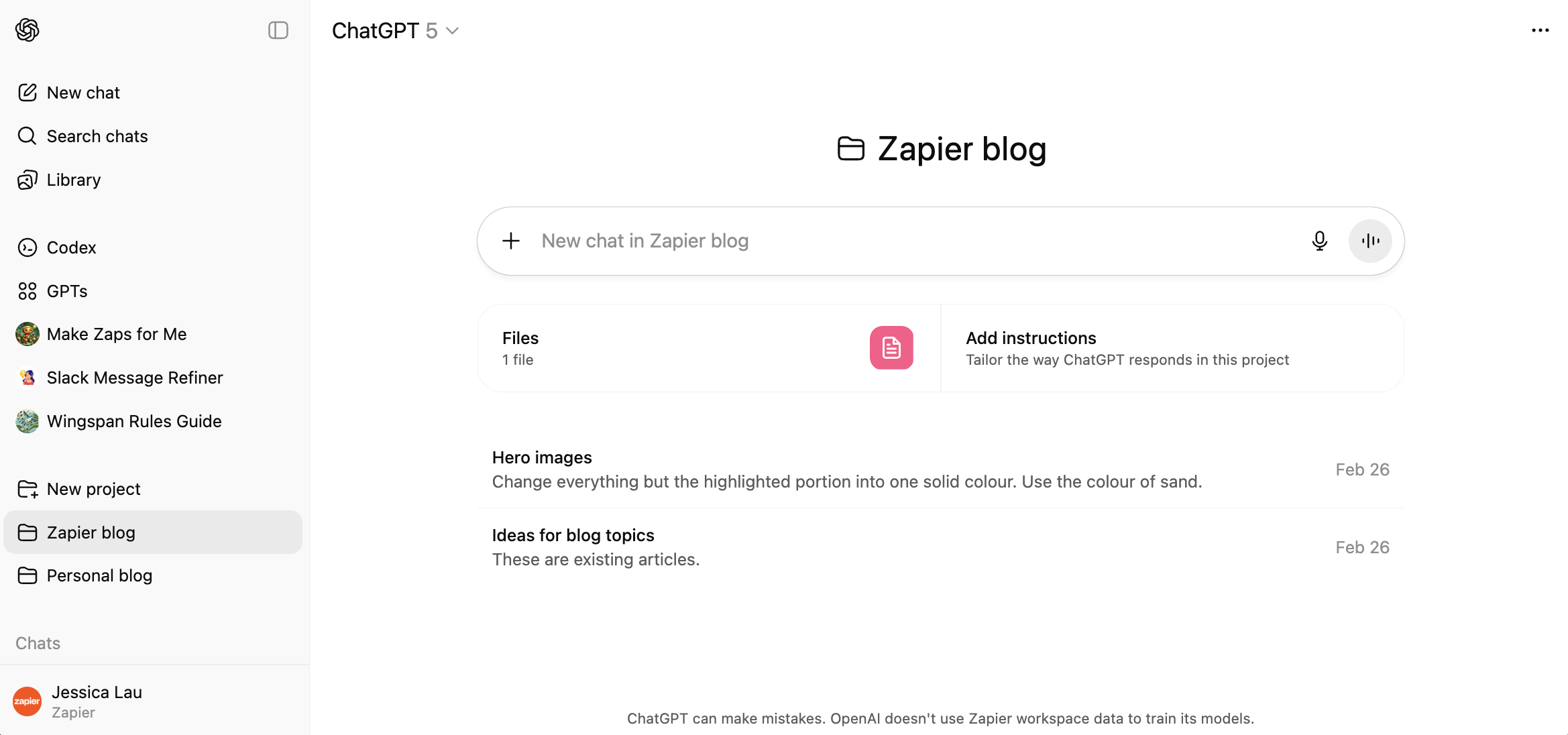
Team and Enterprise support.
Integration with Zapier, which lets you connect ChatGPT to thousands of other apps. You can learn more about how to use Zapier to automate ChatGPT, and here are some examples to show you how it works.
Automatically reply to Google Business Profile reviews with ChatGPTAutomatically reply to Google Business Profile reviews with ChatGPT
Send prompts to ChatGPT for Google Forms responses and add the ChatGPT response to a Google SheetSend prompts to ChatGPT for Google Forms responses and add the ChatGPT response to a Google Sheet
Create email copy with ChatGPT from new Gmail emails and save as drafts in GmailCreate email copy with ChatGPT from new Gmail emails and save as drafts in Gmail
Zapier is the most connected AI orchestration platform—integrating with thousands of apps from partners like Google, Salesforce, and Microsoft. Use forms, data tables, and logic to build secure, automated, AI-powered systems for your business-critical workflows across your organization's technology stack. Learn more.
Grok doesn't match its marketing
Grok can be pretty odd because there's a big gap between what Musk claims it is and what it actually is.
In various statements, Musk has called Grok "maximally truth-seeking … even if that truth is sometimes at odds with what is politically correct." It's meant to be edgy, irreverent, funny, and opinionated. And, in my experience, it's kind of none of these things. Grok will occasionally use slang or answer more casually, but unless you prompt it to be different, its answers are very similar to ChatGPT.


Sure, the safety guardrails are lower and you can more easily get it to make copyright and trademark infringing images, but it isn't some hyper-intelligent or unhinged AI.
If it stood apart from other chatbots in how it responded to your prompts or really did dig deeper, it would be interesting. Instead, it's just another solid chatbot.
ChatGPT offers better value
There's one more big thing that needs to be talked about: the price.
ChatGPT has a great free plan; you can use GPT-4o mini and o3-mini, get search results, and use voice mode. Some more advanced features, like GPT-4o and file uploads, are available but with limits to how much you can use them. It's a pretty compelling way to test out ChatGPT.
Grok's free plan is pretty similar. You can use Grok 3, DeepSearch, and reasoning. There are limits, but if you only use Grok occasionally or just want to try it out, you won't hit them.
However, when it comes to paid plans, ChatGPT offers a lot more value across the board. While both ChatGPT and Grok do a lot of the same things in the same way, ChatGPT is the more mature product. It has dedicated team and enterprise plans that start at $25/month, so if you're looking for a chatbot for your business, Grok isn't even in consideration. ChatGPT Plus costs $20/month and gives you extended limits on all ChatGPT's features. (ChatGPT Pro costs $200/month, but it feels like a marketing exercise rather than something for real people.)
Grok, on the other hand, starts at $30/month for SuperGrok. If you use X, you can get Premium+ for $40/month, which also includes features over on X, but it's an even harder deal to recommend unless you're very active on social media.
ChatGPT vs. Grok: Which should you choose?
ChatGPT is the best chatbot around. While Grok is just as powerful and useful in most circumstances, it lacks a bit of polish, has fewer features and no team support, comes with lots of political baggage, and costs more. If you use Grok, you probably won't be disappointed (unless you expect it to be different from every other chatbot), but ChatGPT is still the better option for almost everyone.
Related reading:
